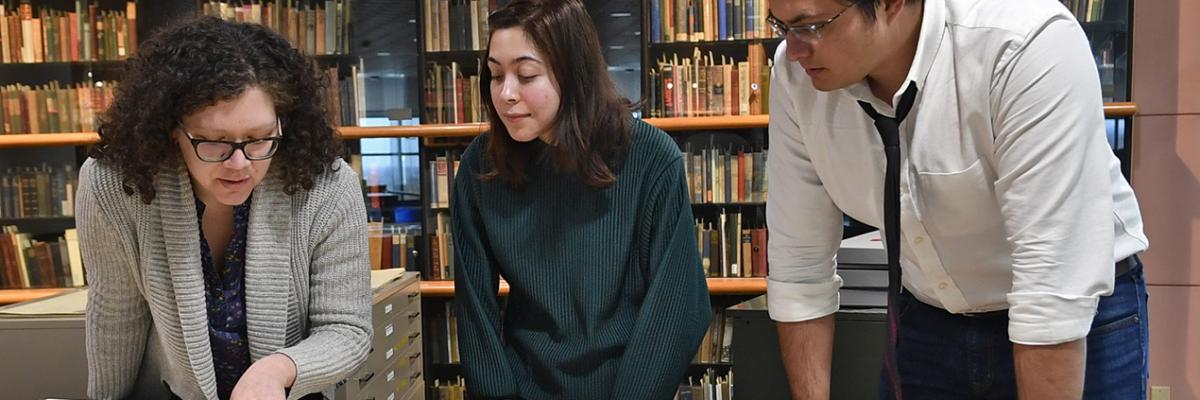
Instruction in the Reading Room:
Special Collections and University Archives offers a variety of instruction sessions employing our Charlotte-based archives or Mecklenburg County-based archives and our wide-reaching rare book collection. While utilizing primary sources held in the Harry And Mary Dalton Reading Room, we seek to have students foster critical thinking and analytical skills and discover possible original research opportunities.
Instruction sessions in the Reading Room are built around hands-on active learning activities that foster primary source literacy. Below are two examples of classes that can happen in the Reading Room and one example of a virtual instruction experience.
The main goal of these teaching sessions focus on building students’ confidence with primary source literacy. If you have further questions regarding primary source literacy, be sure to take a further look at the Guidelines for Primary Source Literacy from the Rare Books and Manuscripts section of Association for College and Research Libraries and the Society of American Archivists.
If any of the lesson plans below interest you, please email Randi Beem, our Instruction Archivist, rbeem@uncc.edu, to schedule a class visit. If you would like to look on your own for materials that may work for your classroom, please head to the Find and Use Materials section of our website. You can use the Library Search System to find a rare book or our Finding Aids site to look for archival materials, including manuscript collections and University Archives.
Rare Book Lesson: (Link out to the History of the Book Lesson)
During rare books focused lessons, we seek to highlight the materiality of books. This allows for students to understand how to handle the books and what rare books can tell them about the time period they come from. Our rare book collection encompasses a variety of genres, and this lesson plan highlights some of our first editions including To Kill a Mockingbird and Poems, Both Religious and Moral by Phillis Wheatley. Also included are freedom narratives written by formerly enslaved people, and our collection of religious texts that showcase marginalia from the readers of the texts.
Manuscripts and University Archives Lesson Plan Example: (LBST 2102 Lesson)
This lesson plan incorporates collections from our Charlotte-focused manuscripts and University Archives documents. The discussion-based course showcases methods from the Librarians Active Learning Institute focusing on the Black Student Union and an exploratory component that focuses on students building connections between manuscript materials through guided discussion.
Virtual Class Presentation: (Charlotte Racial Justice Consortium Presentation)
With virtual classes, we employ digital surrogates of materials and the Librarians Active Learning Institute methods to have students meaningfully engage with primary sources despite not being able to be in the Reading Room. This class presentation also highlights materials from our digital repository, Goldmine, including an oral history and University Archives photographs.